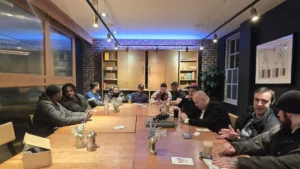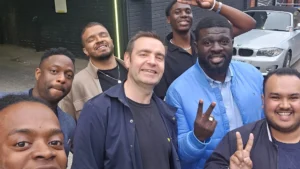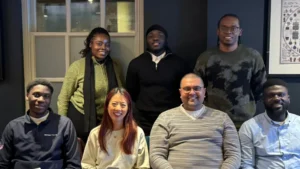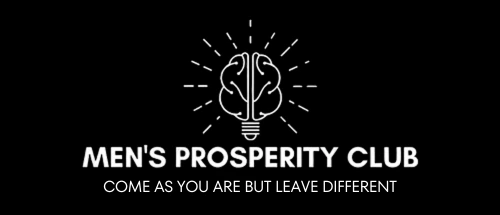Mental Health Awareness Week 2025, running from Monday, 12 May to Sunday, 18 May, is more than just a campaign—it’s a call to act. With the powerful theme “Turn Awareness Into Action,” this year’s event challenges all of us to go beyond simply recognising mental health issues. It’s about getting involved, speaking up and supporting one another in practical, lasting ways.
Led by the Mental Health Foundation, this week has become a cornerstone for mental health education and support across the UK. But what makes this year particularly vital is its focus on action—because awareness alone isn’t enough anymore.
Why “Healing Together” Matters
The title of this year’s campaign, Healing Together, speaks directly to the collective power we hold. Mental health isn’t just a personal journey—it’s a community one. Whether you’re someone who has lived with anxiety or depression, or someone who supports a loved one through it, you’re part of the solution.
In 2025, we’re being encouraged to turn knowledge into meaningful steps. It’s time to take those chats we’ve had around mental health and make them a regular part of our homes, workplaces, and communities.
Mental Health Awareness 2025: Why It Still Matters
Despite increasing openness, mental health struggles are still surrounded by stigma. In many communities, particularly among men, discussing feelings is still seen as weakness. This outdated mindset has real consequences—leading to isolation, breakdowns in communication, and tragically, avoidable crises.
That’s why Mental Health Awareness 2025 is crucial. It shines a light on these ongoing struggles and provides a space to encourage honest, stigma-free conversations—conversations that lead to action.

How to Turn Awareness Into Action
If you’re wondering what real “action” looks like, here are some ways you can make a difference this week—and beyond:
1. Start Meaningful Conversations
It can be as simple as asking, “How are you really doing?” Follow up with active listening. Small gestures can open doors to big conversations. Don’t wait for someone to reach a breaking point—be proactive in checking in.
2. Join or Organise a Community Event
From walks to wellness workshops, getting involved locally builds solidarity. The shared experience of mental health journeys reminds us we’re never alone. Your presence at an event could mean the world to someone struggling in silence.
3. Educate Yourself
Understanding mental health conditions helps reduce judgement. Explore credible sources, attend webinars or read blogs. When you’re informed, you’re empowered—and better equipped to support others.
4. Support Local Mental Health Charities
Financial donations, volunteering, or simply sharing their work on social media helps. Local initiatives often do life-saving work with limited funding. Your contribution, however small, helps extend their reach.
5. Check Your Workplace Culture
Does your office offer mental health days or employee assistance programmes? Are there safe channels for staff to open up? Encourage HR to prioritise wellbeing through workshops or anonymous surveys.
Spotlight on Men’s Mental Health: A Silent Struggle
One group that still struggles to be heard in the mental health conversation is men. Societal expectations around masculinity often mean men are discouraged from expressing vulnerability. This has contributed to rising rates of mental illness, addiction, and suicide among men.
This is where wellbeing support groups in Birmingham like the Men’s Prosperity Club step in. We offer a safe, supportive space for men to explore personal development and mental wellness through connection, openness and shared experience.
We’ve also published insightful blog content, like:
- Modern Men’s Issues We Need to Talk About Today, which tackles the pressures modern men face—from loneliness to career struggles.
- Silent Struggle: Breaking the Stigma Around Men’s Mental Health, a powerful look into why men stay silent and how we can help them speak up.
Encouraging men to seek help isn’t just about offering therapy. It’s about changing the culture—one conversation, one club, one brave moment at a time.

Building Everyday Habits That Support Mental Health
Let’s be honest—most of us don’t have hours each day to dedicate to mental health activism. But action doesn’t have to be grand to be effective. Here’s how to build small, consistent habits that support your mental wellbeing and others’:
Make Mental Health a Weekly Check-In
Treat it like your weekly grocery shop. Schedule 15 minutes to reflect: How do I feel? What’s stressing me out? What do I need more or less of?
Practice Mindfulness
You don’t need to meditate for an hour. Try five minutes of deep breathing or a mindful walk. Slowing down helps your brain reset.
Curate Your Social Media
Follow accounts that uplift you. Unfollow pages that drain your energy or promote unrealistic standards. You control what you consume.
Prioritise Connection
Make plans with a friend—even if it’s just coffee or a walk. Human connection is essential to emotional health, especially in a digital age.
What Businesses and Organisations Can Do
Employers and community leaders have an important role. During Mental Health Awareness Week 2025, use your platform to:
- Run staff wellness workshops or mindfulness sessions
- Share stories of lived experiences within your team
- Promote open-door policies and anonymous support channels
- Include mental health check-ins in regular meetings
Leaders, your actions signal to your team that it’s safe to not be okay—and that support is available.

Why “Healing Together” Isn’t Just a Slogan
The phrase Healing Together represents what’s truly needed now—unity, compassion and responsibility. We heal faster when we do it side-by-side. Whether that’s as mates in a WhatsApp group, colleagues checking in after a stressful week, or strangers nodding in solidarity at a community walk—those moments matter.
Together, we can create an environment where mental health is treated with the same urgency and care as physical health.
Final Thoughts: Don’t Let the Weekend the Movement
When the posters come down and the hashtags fade, what will remain? Mental Health Awareness 2025 should not be a moment—it should be a movement. Use this week as a springboard. Keep having conversations, supporting mental health organisations and turning awareness into daily action.
Let this be the year we didn’t just talk about mental health—we did something about it.



